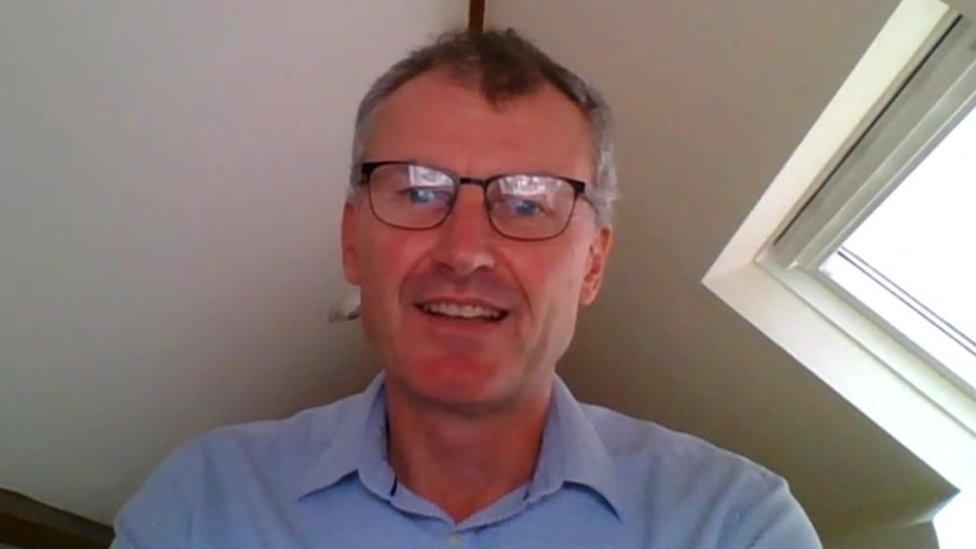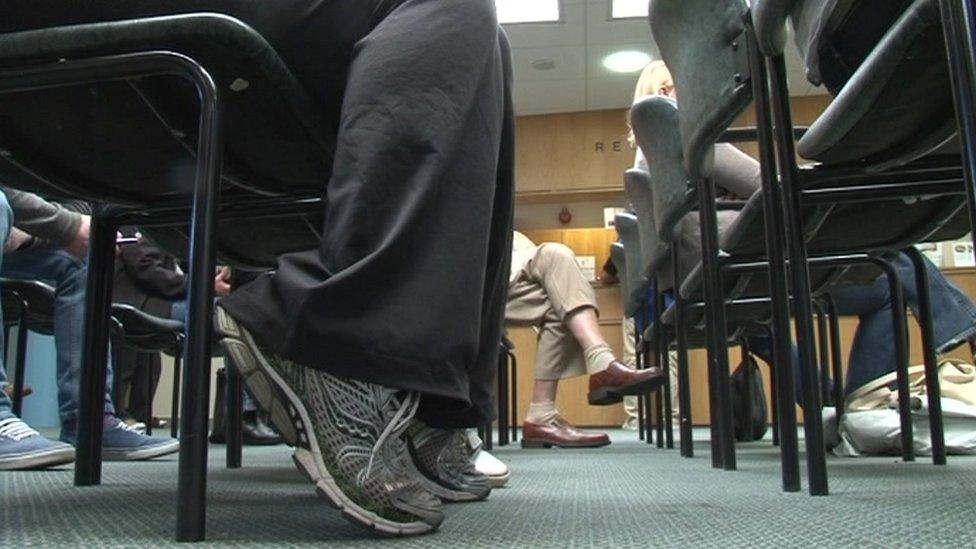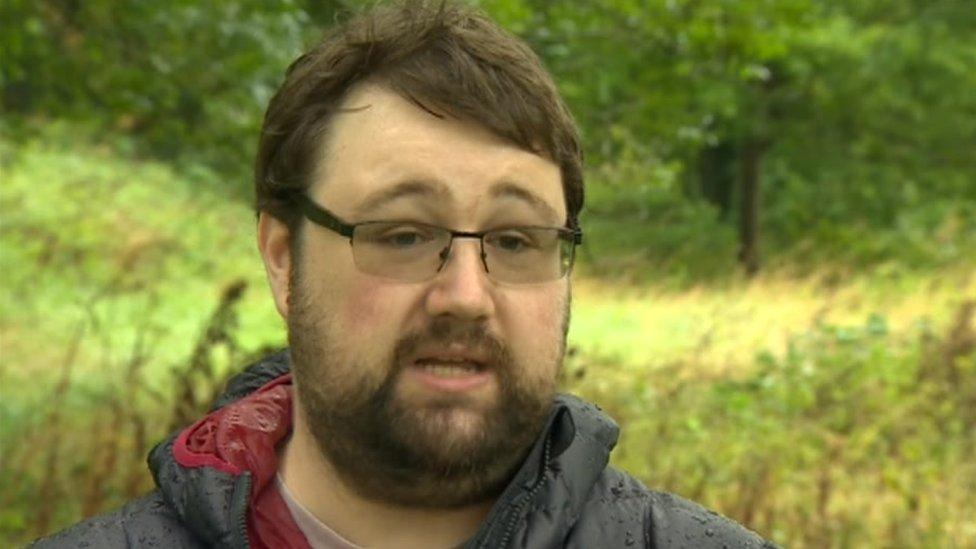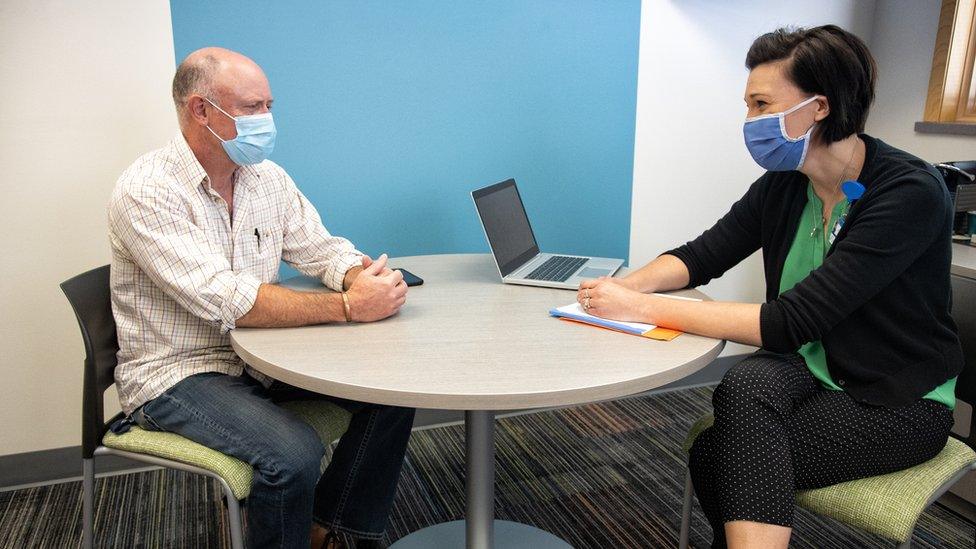'Radical' plan aims to tackle health inequality
- Published

Dr Peter Brindle said it was important to direct resources to groups needing the most urgent support
A "once in a generation opportunity" to address long standing health inequalities is set to be taken in the south west.
Patients with learning disabilities or severe mental illness would be moved up waiting lists at the expense of those with "less urgent needs".
Health chiefs say the "radical" plans are needed as Covid-19 has made existing health inequalities worse.
"We must not let this opportunity pass," said Dr Peter Brindle.
The proposals are being made by Bristol, North Somerset and South Gloucestershire Clinical Commissioning Group.

Patients with learning disabilities and severe mental illness would be prioritised under the plans
Dr Brindle, the medical director for clinical effectiveness, said that restarting services after lockdown had led to a need to make new priorities.
He said the CCG had been considering ways to address inequalities, even if it meant doing "something radical".
"We're aiming to get all our services up and running as before but we can't do that straight away. We have to do some prioritisation because we can't give everything to everybody as we did before.
"We have relatively limited resources so we have to give them to the people who will benefit most.
"There are certain population groups that we knew before Covid-19 were very badly affected through health inequalities but the pandemic has made it worse," he said.
'Shocking statistics'
The Care Quality Commission says that the death rate for people with learning difficulties has more than doubled nationally in recent months - an increase of 134% compared with before the pandemic.
Dr Brindle said the "incredibly shocking" statistics compounded what they already knew.
"People with learning difficulties die a lot earlier than people in the rest of the population, with about 15-18 years difference.
"We're absolutely determined to look at any way we can redress this balance."
Longstanding guidance from the Royal College of Surgeons, used across the NHS, is based on a first come, first served system, but recent guidelines have asked health trusts to address inequalities in care.

Ben Argo has autism and says he has struggled to access the right care for his anxiety
"We are the only place that has been planning this as far as I'm aware," said Dr Brindle.
"There is no template or best practice to take from somewhere else. It's a case of working up the proposals ourselves.
"It's not queue jumping. It's ensuring that people who need care most get it and those with less urgent needs may have to wait a little longer."
CCG chief executive Julia Ross said the plans would need the agreement of the region's hospitals and medics.
Ben Argo has autism with anxiety issues, which have become worse since lockdown.
He says he has often struggled to access the right level of care in his home town of Bristol and would welcome the changes.
"We hear a lot of talk about parity of esteem between mental and physical health but the reality does seem to be a different picture.
"It would mean I would be able to fulfil my potential. I have aspirations to return to university but at the moment because of my anxiety levels and the ability to get treatment, I'm not able to commit to that," he said.
- Published19 August 2020

- Published19 August 2020

- Published12 August 2020
